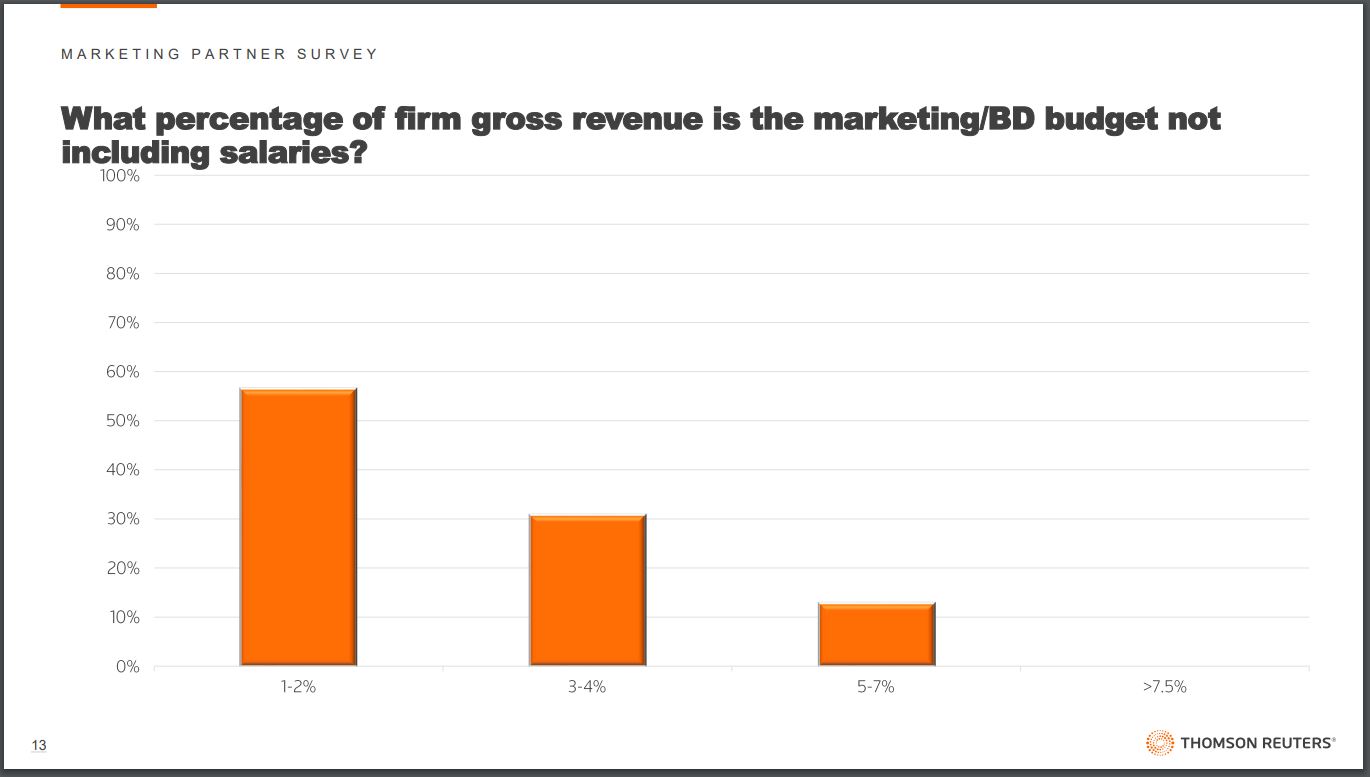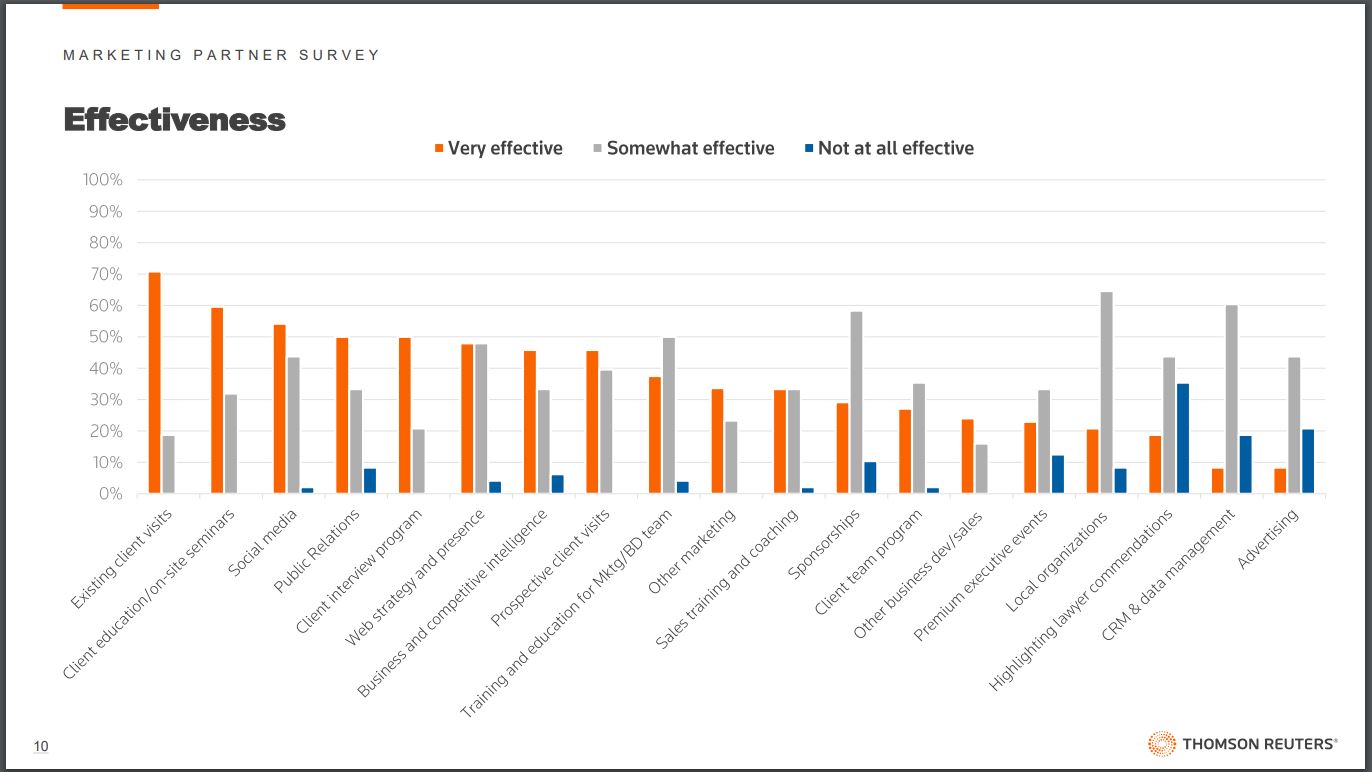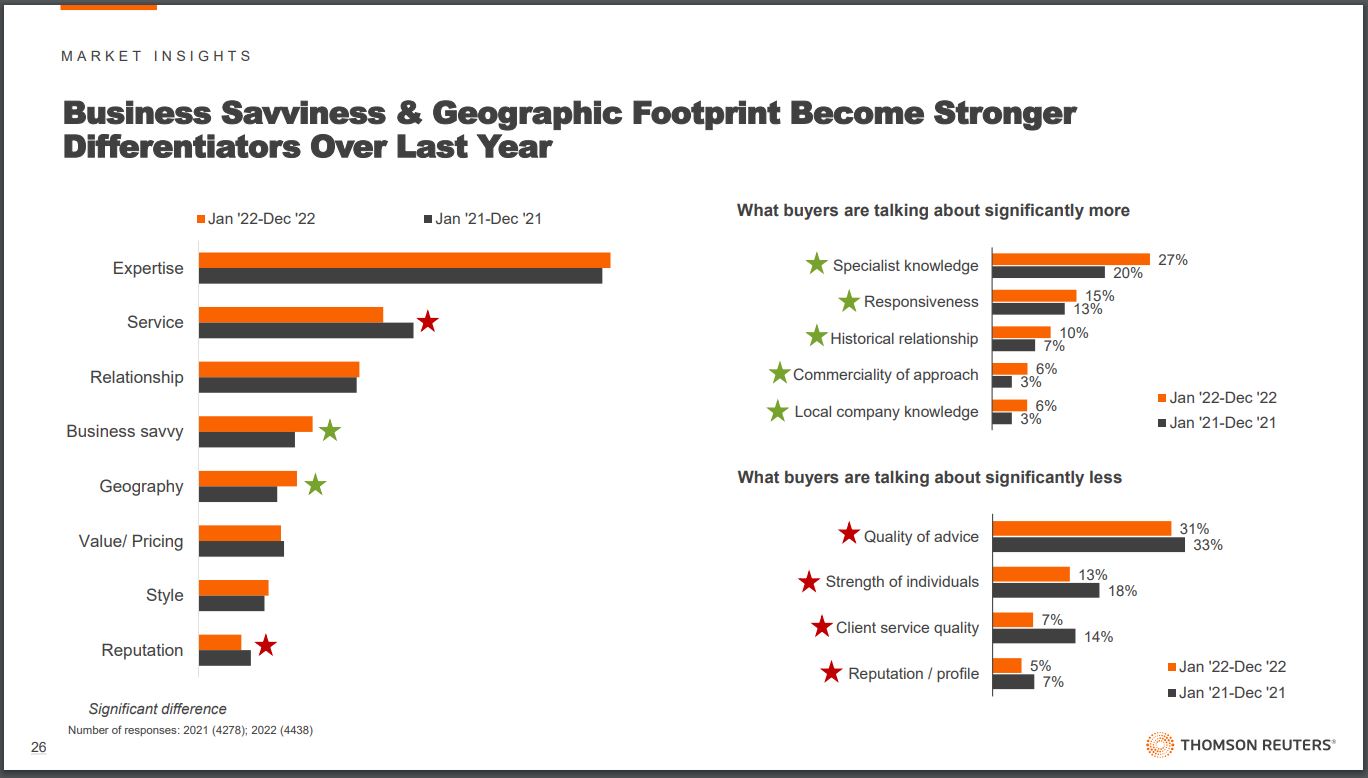As law firm marketing & business development leaders seek a new normal, they look to build collaboration and improve their standing within their firms
RANCHO PALOS VERDES, Calif. — Law firms’ expected spending on marketing is quite bullish for 2023, with many firms anticipating their budgets will stay intact in spite of recession fears, according to a presentation during the Thomson Reuters Institute’s 30th Annual Marketing Partner Forum.
Indeed, many firms are making concerted efforts to get back to more normal days when it comes to budgets after staggering declines during the past three years, presenters noted.
The presentation centered on survey data and proprietary research around the current and future state of legal marketing and business development, highlighted in the Thomson Reuters Institute’s 2023 Marketing Partner Forum Survey. Consisting of global responses from large and midsize law firms, the survey gathered data online from October to December 2022. Survey participants consisted primarily of the marketing or business development leaders within their firms.

The percentage of law firms’ gross revenue devoted to the marketing budget, not including salaries, came in around 1% to 2% on average last year, which is down compared to 2% to 3% in the pre-COVID times, according to presenter Brent Turner, Director of Advisory Services at Thomson Reuters.
As a result, nearly 90% of firms indicated they are prioritizing specific practice areas, industries, or locations for increased investment. What isn’t clear is how much of the marketing budget is going to those efforts or whether a separate budget should be developed. It is also unclear how the marketing department is aligning with those priorities. When attorneys make requests for various marketing activities, those requests that are tied to department and firm goals should receive priority from a budgeting perspective, the presenters explained.
Another theme actively discussed centered around an increased requirement to measure the return on investment (ROI) that marketing and business development efforts may deliver. For example, firm marketing leaders need to demonstrate ROI by connecting the dots from partner requests and activity to what is ultimately delivered in value, explained presenter Silvia L. Coulter, Principal and Business Development Practice Leader at the LawVision Group.
“Develop a pipeline report to tie marketing and business development to revenue,” Coulter said. “Bring yourself and your team as close to the money as possible.”

The survey also asked respondents how effective they thought certain marketing and business development activities actually were. Visiting existing clients received an overwhelming 70% of very effective responses, client education/on-site seminars were cited as very effective by approximately 60% of respondents, while social media, public relations, and client interview programs followed closely behind.
Only a small handful of session attendees said they were measuring effectiveness, which was not surprising. “We have to do market research and then measure it again a year or so later to see if there is a change or increase in awareness or revenue,” Turner said. “This is not typical in law firms, but it is in the corporate world.”
There is a huge opportunity for marketing leaders to begin collecting data around some of these activities and how they relate to their firms’ overall strategy, Coulter observed, adding that there is often confusion among partners as they try to understand the value of these marketing activities.
Is there a connection or direct link? Coulter asked, noting that every request that comes into the marketing department should be tracked, along with the outcome.
Client service, collaboration & sales
When asked about the primary way their firms seek to set themselves apart from competitors, respondents cited client service as the main differentiator. However, clients see client service as less important, according to the presenters, and it may be more akin to table stakes. Clients are increasingly seeking to hire outside law firms that can offer specialized knowledge, responsiveness, historical relationships, and — in some cases — local company knowledge.

One clear way that a law firm can boost its share of client spend is by introducing collaborative teams, yet 71% of survey respondents said their firm has not seen a rise in collaboration within and across practicing teams. Of those respondents that said they had, 100% said they had seen positive results.
Collaboration also can include firm professionals — like salespeople — who aren’t lawyers. While 70% of respondents reported having no fully dedicated externally focused salespeople, Coulter notes that she is seeing an increased interest in the pure sales function simply because most lawyers are not trained in sales and most trained sales people know how to wrangle a bigger share of their clients’ spend.
One audience member inquired about the receptiveness of clients to salespeople, noting that attorneys often believe that clients prefer only to speak to lawyers. Coulter, who often moderates panels of corporate general counsel, said that when GCs are asked about who they would rather work with over a continuum, the majority say salespeople, not partners. After all, she added, clients often have their own sales teams who work closely with their internal law departments.
Biggest challenge & next steps
The survey showed that greatest challenge faced by law firm marketing and business development departments is one that has not changed since this survey was first launched — a lack of lawyer engagement.
However, this can change if firm marketers can correlate the activity requests with new business, Coulter suggested, adding that it’s best to start with a few willing people, not the entire firm.
Besides showing the attorneys the proverbial money, the presenters recommended that marketing professionals continue to invest in professional development, especially in their own teams and in themselves. They also should follow the same advice they give firm attorneys: build relationships with key stakeholders in the firm and conduct internal feedback surveys to stay aware of potential pitfalls and future opportunities.
“It’s about not being viewed as a cost center,” Turner says. “It’s about being viewed as an enabler of the enterprise.”







